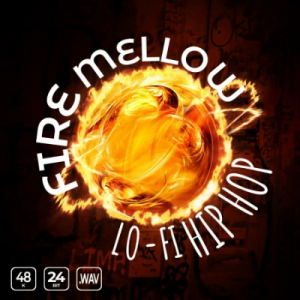

With Vocal Bass Music, you get the hottest bass and melody loops, groovy drum loops, and vocal acapellas. This pack was inspired by such artists as Boombox Cartel, Ekali, QUIX, Moody Good, Brillz, Trav Piper, Illenium and ATLiens, Getter, Skrillex, Flume, Zomboy, Barely Alive, Kill The Noise, Eptic and even Noisia.
#Dabro music hip hop one free#
All samples and acapellas are 100% royalty free as standard.Ī unique combination of advanced sound design with melody and brightness of female vocals. Īnd check out our books about the English language.DABROmusic delivers this massive ‘Bass Music Samples’ library with 12 demo tracks and 15 Vocal Acapellas including wav stems. Help support the Grammarphobia Blog with your donation. It was first recorded in 1904, the OED says, and means “apprehensive, nervous filled with trepidation.” The latecomer here is “trepidatious,” the most common of the adjectives in today’s English. “He scored well on the written part of the examination and, although somewhat trepidant about facing an all-white oral examination board, he sailed through their questions.” This is a description of Clifton Reginald Wharton Sr., an African-American diplomat, taking the Foreign Service exam in the 1920s: Ambassadors Since 1775, a 1997 book by Cathal J. We’ve found an even clearer example in Notable U.S.

Here’s a slightly later OED example in plain English: “In either party are many trepidant hopes and fears” (from the July 2, 1892, issue of Black & White, a British illustrated weekly). The first example is from an 1891 paper by Philip Coombs Knapp in the Journal of Nervous and Mental Disease: “Astasia-abasia, with the report of a case of paroxysmal trepidant abasia associated with paralysis agitans.” Oxford describes it as rare, and defines it as “trembling with fear or agitation.”

“Trepidant,” the adjective you’re asking about, showed up more than two centuries later. The first of three examples is from Sacred Principles, Services, and Soliloquies, a 1650 book of devotions by William Brough: “Trembling, and chilnesse, and confusion in the powers of action … a stupid, trepid, troubled motion.” The OED says the rare adjective “trepid” showed up in the mid-1600s, meaning “trembling agitated fearful.” The now obsolete verb “trepidate” showed up around the same time, in The English Dictionarie: Or, an Interpreter of Hard English Words (1623), by Henry Cockeram: “ Trepidate, to tremble for feare.” The dictionary’s first citation for the new sense is from another work by Bacon, a 1625 collection of his essays: “There vseth to be more trepidation in Court, vpon the first Breaking out of Troubles, then were fit.” However, the noun soon took on the modern sense of “tremulous agitation confused hurry or alarm confusion flurry perturbation,” according to the OED. “Massiue bodies … haue certaine trepidations and wauerings before they fixe and settle.” The first example in the Oxford English Dictionary is from Of the Proficience and Advancement of Learning, a 1605 book by the philosopher and scientist Francis Bacon: When it showed up in the early 1600s, “trepidation” referred to a vibrating, oscillating, or rocking movement.

“Trepidation” is the oldest of the English words and the most common today. M-W Unabridged also has two related adjectives: “trepidatious,” which is defined as “feeling trepidation: apprehensive nervous,” and “trepid,” defined as “timorous, trembling.” (We discussed “ trepidatious” and “ trepidated” in previous blog posts.)Īll of these words of agitation, including the noun “trepidation” and the obsolete verb “trepidate,” are ultimately derived from trepidāre, classical Latin for to hurry, to bustle, be agitated, or be alarmed. I believe it means timid, but I’d like to see how it’s used in a sentence before I use it myself.Ī: We’ve found the adjective “trepidant” in several standard dictionaries, including Merriam-Webster Unabridged, which defines it as “timid, trembling.” But it’s rarely used, which explains why you’ve had trouble finding an example. Q: My dictionary has the word “trepidant,” but no definition or example.


 0 kommentar(er)
0 kommentar(er)
